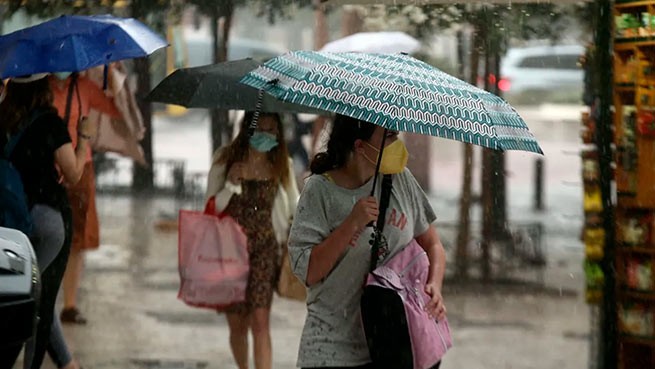Just over 700 euros “net” is minimum wage for 600,000 workers (15% of the working population of Greece) from April 1, while a difference of about 40 euros appears in the pockets of workers, which is clearly not enough to cover the growing needs caused by galloping inflation, especially in the food sector.
In particular, workers receiving the minimum wage will receive 830 euros “gross” (dirty), while their “net” income will be about 706 euros for a worker without children, three-year contracts, etc.
Today the salary is 780 gross, that is, 667 euros “net”. Thus, the monthly salary increases by approximately 40 euros.
GDP per capita and specific measures
With official annual food inflation of 6.6% in 2023, the government-announced increase in the minimum wage does not exceed 5.85%, and in terms of GDP per capita, our country already ranks second from bottom among the countries of the European Union (in 2022 it was 3rd place) .
In sad for Greece statistics figurespublished on Tuesday (26/03) by Eurostat, our country is in penultimate place among the 27 countries of the European Union (EU).
In fact, over the past 2 years, food prices have increased by more than 130%, contributing a significant percentage to the overall inflation rate and hitting the least protected segments of the population as hard as possible.
Greece competes with Bulgaria, which of all EU countries (average 100) ranks last in GDP per capita with 64 points, and Greece follows with 67 points. Latvia, third from bottom, has 71 points. The first country by a large margin is Luxembourg with 240 points, and the second is Ireland with 212.
It is worth noting that throughout this period, food inflation was a multiple of the overall index, and in the two months to 2024, prices increased by 7.5% compared to the same period last year.

Speaking about the Prime Minister's statements regarding the minimum wage, Labor Minister Domna Mihailidou noted in particular that as of January 1, the three-year minimum wage was unfrozen, and this is a significant advantage for workers receiving the minimum wage. Thus, the salary with one three-year period is (before income tax) 913 euros, with two three-year periods it is 996 euros, and with three three-year periods it is 1079 euros on a 14-month basis.
https://www.youtube.com/watch?v=VLLMw3uHL1k
Offer GSEE and 2027
GSEE proposed to increase wages by approximately 16.4%, i.e. 128 euros, and set a new minimum wage of 908 euros gross (gross). According to GSEE, the need for a significant increase in the minimum wage is also justified by Greece's particularly poor performance on a number of indicators reflecting the living standards of workers and households with the lowest incomes.
It is significant that in 2022 the country ranked fifth among EU member states in terms of the percentage of workers at risk of poverty. Moreover, 44.5% of low-income households experienced conditions of severe material and social deprivation.
Raises 'look big but aren't'
The government plans to set the minimum wage at €950 gross by 2027, but the harsh reality reflected in the pockets of citizens is that every announced increase in the minimum wage is met with a wave of price gouging.
In general, the intense phenomena of the so-called greed inflation, insufficient control over the excess profits of the oligopoly and cheap labor form an explosive cocktail. Tellingly, a recent report from the Center for Planning and Economic Research (CEPE) notes that despite a 20 percent increase in average wages over the past four years, the average salary in Greece has reached 1,250 euros, which is lower in nominal terms than 15 years ago.
“For the Greek data, especially those that emerged after the economic crisis, such as the sharp decline in the nominal minimum wage in 2012 and stagnation in subsequent years until 2018, the increases that occurred in the last five years, that is, from the first half of 2019 to the first half of 2024 may seem large. However, they should not be considered as such.” – noted in ΚΕΠΕ.
The recent announcement of a serious labor shortage in the tourism sector is an example of the fact that the Greek population (mainly young people) is leaving their homeland in search of a better life.

And the decision to replace them with migrants from Asian and African countries, although it will allow businesses to solve the problem of labor and save on wages, in the long term could lead Greece to serious demographic imbalances, following the example of France. Scientists have long been sounding the alarm that the number of ethnic Greeks in Greece is decreasing every year, and instead of Hellenes, the country's population is replenished by migrants from Asian and African countries.







More Stories
The Minister of Health called the protesters "insignificant people, kafirs"
Gold Switzerland: “We are in the last 5 minutes of our financial system – the collapse of everything is approaching”
Union of Judges: “People’s courts were created against us with the loyal attitude of the government”